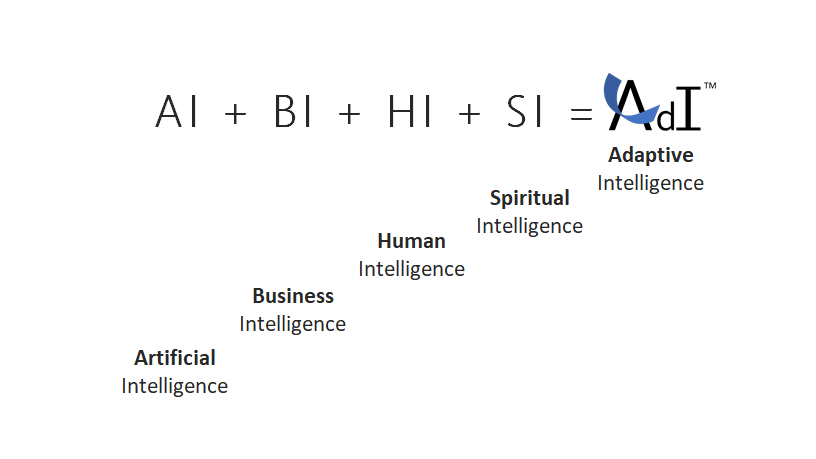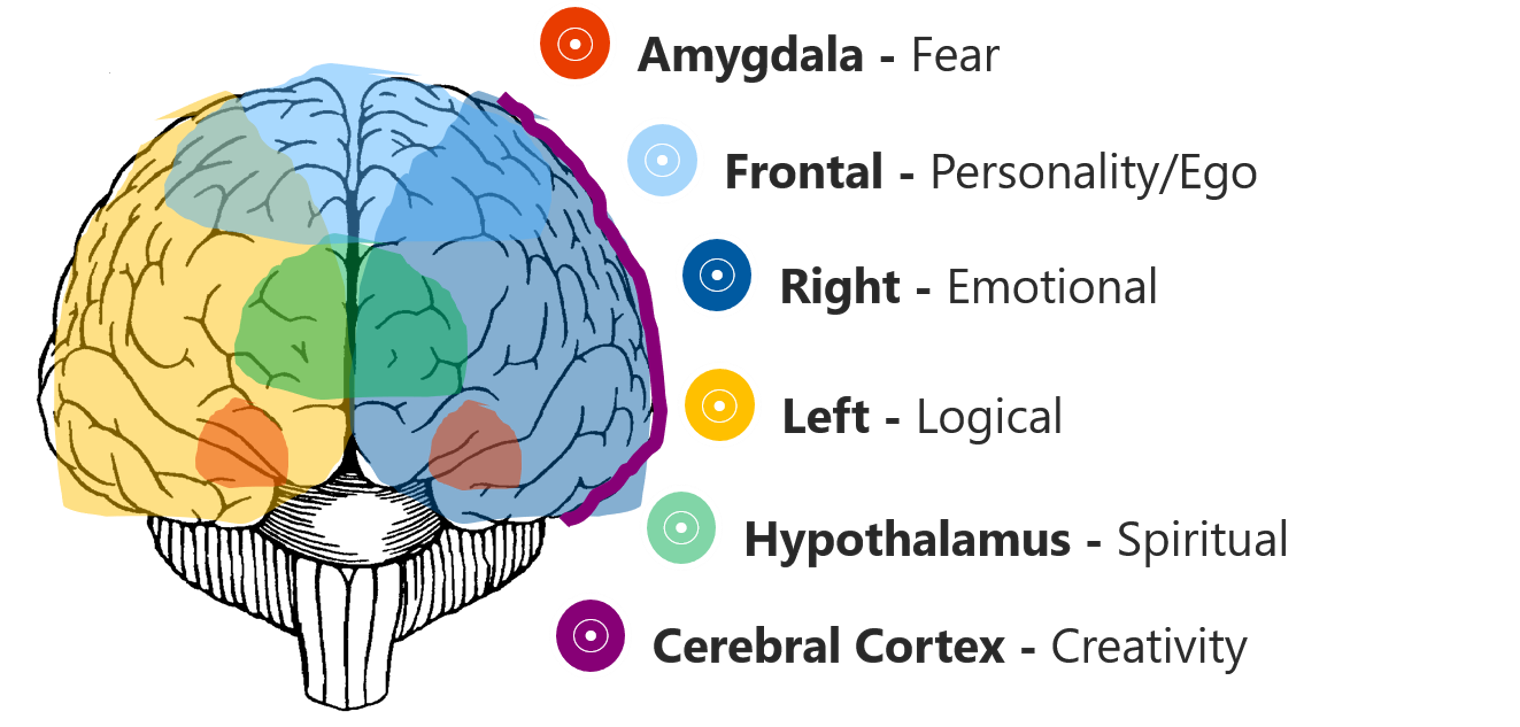
Opening Insights: Always Plugged in but Perpetually Disconnected
Technological progress has merely provided us with more efficient means for going backwards.
ALDOUS HUXLEY, ENDS AND MEANS
When loneliness overcomes us and we seek out companionship that is in alignment with our existing perceptions, thinking and behavior... we will only perpetuate the challenges we have.
We'll be unable to seek new and constructive perceptions, thinking and behavior that will allow us to grow and reach beyond our existing boundaries. We will recreate the challenges we face and build walls to perpetuate our shortcomings.
History doesn't repeat itself, we repeat history.
RICHARD JORGENSEN
Informational Insights: Loneliness Linked to Health Challenges
The following article was published by CNET, telling you "what's new in tech, culture and science, why it matters, how it works and what you need." It was written by Erin Carson, staff reporter for CNET.
A growing amount of research shows loneliness could be linked to a range of health problems.
People were already lonely before the coronavirus pandemic hit. Before COVID-19 stranded folks at home and made getting close to others an unnerving experience, researchers were realizing Americans were lonelier than ever.
A 2018 study from health care insurer Cigna found that 54% of 20,000 Americans surveyed reported feeling lonely. In the span of a bit more than a year, the number rose to 61%. Generation Z adults 18-22 years old are supposedly the loneliest generation, outpacing Boomers, Gen X and Millennials, despite being more connected than ever.
Loneliness has hit epidemic proportions, said Doug Nemecek, chief medical officer at Cigna.
More troubling: A growing body of research suggesting that being lonely for a sustained period of time could be bad for people's physical and mental wellbeing.
That same study from Cigna placed associated health risks on par with smoking and obesity.
An 2018 article in The Lancet described the situation like this: "Imagine a condition that makes a person irritable, depressed and self-centered, and is associated with a 26% increase in the risk of premature mortality."
But these are strange times. As a result of COVID-19, keeping distance from others is the safest way to stay healthy, despite the fact it could compound feelings of isolation. It's a new reason to consider how loneliness can impact everything from your brain, to your heart, to your immune system.
Why we get lonely
Loneliness might conjure images of being apart from friends and family, but the feeling runs much deeper than not having plans on a Friday night or than going stag to a wedding. Evolutionarily, being part of a group has meant protection, sharing the workload and increased odds of survival. After all, humans take a long time to mature. We need our tribes.
"It's very distressing when we are not a part of a group," said Julianne Holt-Lundstad, professor of psychology and neuroscience at Brigham Young University. "We have to deal with our environment entirely on our own, without the help of others, which puts our brain in a state of alert, but that also signals the rest of our body to be in a state of alert."
One of the fundamental challenges of the research: Loneliness is a subjective feeling that can't really be measured.
Staying in that state of alert, that high state of stress, means wear and tear on the body. Stress hormones like cortisol and norepinephrine can contribute to sleeplessness, weight gain and anxiety over extended periods of exposure, according to the Mayo Clinic.
The pandemic, Holt-Lundstad pointed out, is possibly the most stressful experience many people have had in their lifetime. Daily life has been upended, unemployment has skyrocketed and more than 6 million people around the world have been infected. Normally, immense challenges like those would have you seeking the reassurance and support of family and friends. But due to the nature of virus, people are at least more physically alone than ever, making it that much harder to cope.
Studying loneliness
Loneliness is something almost everyone can relate to, but scientists are still working to understand how and why it impacts health. One of the fundamental challenges of the research: Loneliness is a subjective feeling that can't really be measured. Not even the size of a person's social network can guarantee how lonely they are.
Holt-Lundstad said it's a matter of asking people how they feel in surveys, either directly (how often would you say you're lonely?) or indirectly (do you feel you lack companionship?).
NASA has been studying the effects of isolation and confinement on astronauts for years, coming to some of the same conclusions as myriad other studies: Isolating conditions can lead to cognitive and behavioral issues. Elsewhere, though, researchers are looking at biological aspects of loneliness and how it physically affects the body.
That can mean looking at brains.
Researchers at the Rush Alzheimer's Disease Center in Chicago studied 823 older adults during a four-year period. They used questionnaires to assess loneliness, classifications of dementia and Alzheimer's disease, as well as tests of the participants' thinking, learning and memory, and assigned a loneliness score between 1 and 5. They found a person's risk factor for Alzheimer's increased 51% for each point on the scale.
Autopsies were performed on those who died during the study. Loneliness wasn't shown to cause the "hallmark brain changes associated with Alzheimer's disease, including nerve plaques and tangles, or tissue damaged by lack of blood flow." However, one researcher involved in the study, Robert S. Wilson, said loneliness could make people more vulnerable to the "deleterious effects of age-related neuropathology."
"Loneliness [can] be a good predictor of accelerated cognitive decline," said Turhan Canli, professor of integrative neuroscience at Stony Brook University.
How exactly loneliness links up with health issues isn't entirely understood. One idea, Canli said, is that if someone is lonely and feeling down on themselves, they might be less likely to take care of themselves. They might not eat right. They might drink too much, worry a lot, sleep too little. Habits like those can have longer-term effects.
Canli also talked about work he's been involved in with another researcher at the Rush Alzheimer's Disease Center, David Bennett, that explores how different genes are expressed in people who are or are not lonely.
Some 30 years ago, Bennett started a longitudinal study whose participants agreed not only to annual physical and psychological checkups, but to donate their brains when they died. Researchers looked at two regions of the brain related to cognition and emotion. They found genes associated with cancer, cardiovascular disease and inflammatory diseases expressed in those who were lonelier.
"There's actually a network of connections between these different genes by which they can affect each other," Canli said, "that might be an underlying genetic reason why these diseases might show up as a function of loneliness."
That's not to say loneliness causes heart disease. There's more research to do, including the role heritability plays in gene expression. Earlier work by a UCLA researcher named Steve Cole suggested one possibility -- that the release of certain hormones while under the stress of sustained loneliness could be activating certain genes linked to health issues.
"The subjective experience has to be translated somehow in the brain into biology, and so that's that's we're looking at now," Canli said.
Better understanding these relationships could one day influence therapies designed to treat patients.
The future of loneliness
Even as states are starting to relax lockdown orders and restrictions on restaurants, bars and other public places, the role social distancing could play in society is unknown. In April, Harvard researchers said intermittent social distancing could be necessary through 2022.
NASA astronaut Scott Kelly, who spent 340 days in space, wrote a piece for The New York Times in March, offering advice based on his experience. Kelly recommends keeping a journal, sticking to a schedule and getting a hobby.
Nemeck, from Cigna, noted that now more than ever, it's more important to check in on others and be open to having honest conversations about feelings of loneliness, while batting down stigma attached to the feeling.
"We need to reach out to some friends and make sure we maintain those connections and have meaningful conversations," he said. "It's important for all of us to be comfortable asking other people how they feel."
https://www.cnet.com/news/how-loneliness-could-be-changing-your-brain-and-body/
This article was published by CNET: How loneliness could be changing your brain and body
Possibilities for Consideration: Solving the REAL Cause
Social distancing, lock-down protocol and self-quarantines are challenging us all to maintain a sense of sanity, but let's face it... most Americans were in trouble as it relates to participating in fulfilling relationships far before the COVID-19 pandemic response.
What would it be like to address the real problem, rather than applying a series of temporary patches that only diminish the symptoms?
The COVID-19 Pandemic Lock-down
has turned our world upside-down and...
we must take charge now.
We are all in the midst of an evil process that has turned good people into mindless soldiers of:
Deceive, Divide, Conquer.
A select group of data scientists have banded together to develop a system more powerful than Google, Facebook and Twitter – a system that will return the power to the people who are committed to freedom, equality and solidarity.
COVID-19 leaves a residue called Adaptive Resistance (AdR™).
It impacts everyone’s ability to:
- Trust their teammates – Employment
- Trust their medical council – Health
- Trust their teacher/mentor – Life Skill
- Trust their financial advisor – Wealth
- Trust their legal advisor – Freedom of Choice
- Trust others that are different – Diversity-Adversity
- Trust their own wisdom and ability to discern YES or NO! – Self Esteem
AdR™ affects and infects our ability to:
- Hear (Awareness)
- Understand (Reasoning)
- Remember/Recall (Smarts)
- Apply Sound Advice (Intelligence)
- Repeat the Insight and do what works again (Wisdom)

We lack tools for change Adaptive Intelligence (AdI™):
- What we can change (…and what not to change)
- Why we can change it
- How we can change it
- When we can change it
We must evolve existing online environments to follow a methodology for responsible communication and raise Adaptive Intelligence (AdI™).

This allows all participants to become empowered with a readiness for change and an ability to accept, adapt and sustain change (assess-discern-implement and confirm).

Adaptive Intelligence (AdI™) Algorithm
A team of top Microsoft Social Data Scientists brought together their combined knowledge. They took AI + BI and added HI + SI to create an AdI™ algorithm to support
Whole Brain Functionality.
They developed a methodology using
Application eMods™
that empower people to easily:

- Unlearn old habits
- Re-learn new principles
- Support, Assess and Apply to sustain change
This algorithm can be added to existing education/training materials to enhance effectiveness and convert proven wisdom into tools for change in a changing world.
To evaluate this new and exciting breakthrough, request a Co-Lab™ Research Institute Application to gain access to be able to:

- Add the Teams 20/20 AdI™ App
- Evaluate your team environment
- Join a Teams 20/20 resource group
- Empower life at work, home, worship, and play
It's time to stop being lonely and start taking charge of our lives.
Add Your Insight
Take a moment and examine…
- As you reviewed the material above, what stood out to you?
- What is the potential impact, economically and/or socially?
- What action is needed to stop or support this idea?
- You may want to consider whether you:
- want to be aware of,
- should become supportive of,
- would want to be active in this topic?
I have been impressed with the urgency of doing. Knowing is not enough; we must apply.
Being willing is not enough; we must do.
LEONARDO DA VINCI
